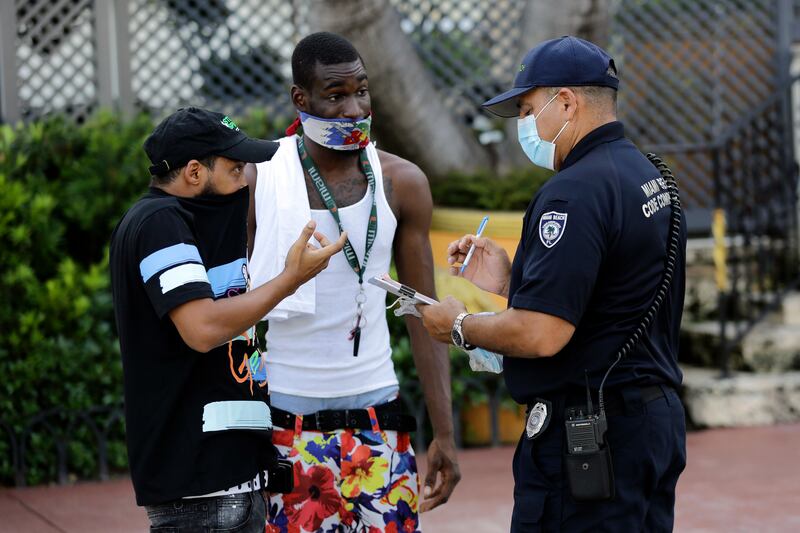We Americans love our Constitution — so much so that we tend to conclude that anything we find obnoxious or offensive must somehow be obnoxious or offensive to the Constitution. If we oppose something vehemently enough, it must be not only misguided, but illegitimate; not only wrongheaded, but unconstitutional.
Take mask mandates. A powerful and growing body of scientific evidence confirms that covering our mouths and noses with masks slows the spread of COVID-19 dramatically. But masks are disagreeable. They’re hot. They itch. They cramp our style. So when governments require us to wear them in public, we object that such mandates are unconstitutional.
Hardly. Mask mandates are constitutionally valid. The question is an easy one.
Why so?
Mask mandates, or any other official measure, might be unconstitutional for one of two reasons. Either (1) the government doesn’t have authority to regulate the matter or (2) the regulation violates some specific constitutional right. Let’s consider both possibilities.
First some Constitutional Law 101. The federal government is a government of limited powers. It can exercise only those powers conferred upon it by the Constitution. The States retain the rest, including what constitutional lawyers call “the police power” — the power to regulate activities that affect public health, safety or morals.
Mask mandates are quintessential health regulations. Just as states can require you to wear clothes in public to protect morals, they can require you to wear masks in public to protect health. You might prefer to go maskless. I might (but don’t) prefer to go naked. But the state of Utah has power to thwart us both.
What about the federal government? That’s a somewhat harder question and, at least for now, a purely academic one. But as an academic I will note that since the 1930s the Supreme Court has been very generous regarding the federal government’s power to regulate interstate commerce. On the court’s reading, that power extends to all activities that substantially affect interstate commerce. And nothing in my lifetime or my parents’ lifetime has affected interstate commerce more than the spread of COVID-19. The federal government has ample authority to frustrate our facial fashion choices in order to slow that spread.
What about constitutional rights? Well, it depends on which rights you have in mind. If mask mandates are unconstitutional, it can only be because they violate specific constitutional rights, not just rights in general.
One possibility is that mask mandates offend our First Amendment right to “the freedom of speech” or expression. Not wearing a mask is certainly expressive. These days, alas, it is widely understood as a political statement. But mask mandates’ purpose is not to suppress political expression but to hinder COVID-19. And the Supreme Court has held — for more than 50 years — that when a law indirectly restricts expression by targeting conduct, it is constitutional so long as it is “substantially related to an important government interest.” If combating COVID-19 isn’t an important government interest, I don’t know what is. And by now the substantial link between donning masks and curbing COVID-19 should be beyond dispute.
I suspect that much opposition to mask mandates stems from a vague sense that they constrain our liberty and must therefore, in a free country like ours, be unconstitutional. The Fifth and 14th amendments do indeed limit governments’ capacity to deprive us of “life, liberty, and property,” and the Supreme Court has long held that “liberty” extends to certain “fundamental” rights, including some not enumerated in the Constitution: the right to raise your children as you see fit, the right to marry, the right to use contraception, etc.
The court has never held, however, that we have a fundamental right not to wear masks in public. Even if it did, the court’s precedents establish that governments could still limit that right if doing so was “necessary to further a compelling government interest.” Clearly, combating COVID-19 is a compelling interest. And for the time being, we can’t do so effectively without requiring masks.
I might go up and down the Bill of Rights making similar points. The bottom line is that governments have authority to mandate masks in public places, and nothing in the Constitution prohibits such mandates.
The question is not close. Mask mandates are constitutional, and masks can save lives. Mask up, Utah.
Justin Collings is a professor of constitutional law at Brigham Young University’s J. Reuben Clark Law School. His views are his own.


